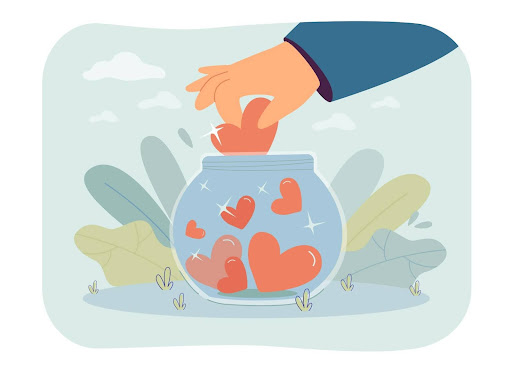Whether it’s balancing exams, activism, a social life, side hustles, or just trying to figure out what the future looks like - young people today are carrying a lot. Add to that the constant pressure to be “okay,” to stay productive, to have a plan (with a backup plan), and it’s no surprise that stress, anxiety, and burnout are so common.
Professional mental health support can be life-changing - it’s a powerful step toward healing and growth. And alongside it, there’s something often overlooked that can uplift us too: generosity.
Not just in a “do good, feel good” way - though that’s part of it. Research shows that even small acts of giving can reduce stress, build social connection, and improve mental wellbeing. A study by the University of British Columbia and Harvard Business School found that people who spent even as little as $5 or Rs. 400 on others reported greater happiness than those who spent it on themselves. Giving activates regions of the brain associated with pleasure, social connection, and trust, which in turn help lower stress and support mental health.
It’s psychology, physiology, and community, all rolled into one. And the best part? Giving doesn’t require you to have it all figured out. You don’t need to be in a perfect headspace, or have lots of time or money. Generosity can be quiet, messy, casual. It still counts.

Let’s be honest: most of us don’t always have the time, energy, or resources to spare. But that’s not what generosity is about. Some of the most impactful ways to care give cost nothing.
Caregiving, especially in the context of mental health, is the act of offering emotional support and understanding to those around us who might be struggling. It’s the small, steady ways we show up for people, often quietly, and without being asked. And while it may not always seem like much, it can mean everything.
Even when you’re anxious, tired, uncertain - you can still be generous. Generosity isn’t about being perfect or having extra. It’s about showing up anyway. Because in a world that tells you to compete, keep scrolling, and stay in your lane - choosing to give, even a little, is a radical act. It’s how we take care of each other.
So if you're feeling low, start small. Start with one gesture, one moment of kindness - to someone else, or to yourself. You still have something to give. And that might just be where the healing begins.
Opening up about your mental health journey - even just a little - can be an act of giving too! Who knew? Sharing your story, with all its twists and turns, might be exactly what someone else needs to feel less alone, to be seen, to be understood, and more importantly, to feel hopeful.
That’s the spirit behind Stories of Hope - a space where real people share what it’s like to navigate mental health challenges and find moments of strength, support, or healing.
This idea that says generosity doesn’t have to be grand or financial to be meaningful, is part of a growing global movement called GivingTuesday. Whether it’s lending a hand, checking in on someone, or sharing your story - giving, in all its forms, is one of the simplest ways to spark hope. In others, and in yourself.
More generous societies tend to be healthier, more connected, and more equipped to face challenges together. At the end of the day, generosity isn’t just good vibes - it’s a powerful tool for personal and collective healing!